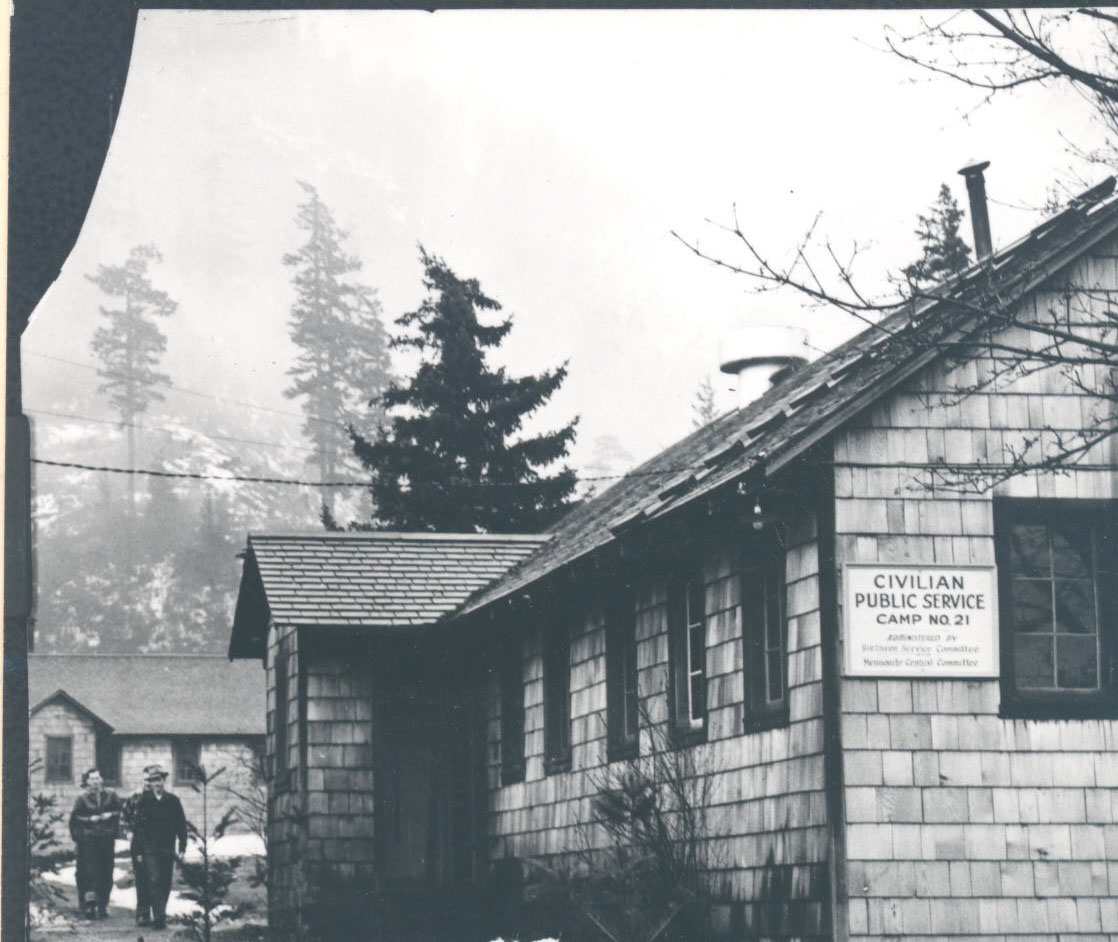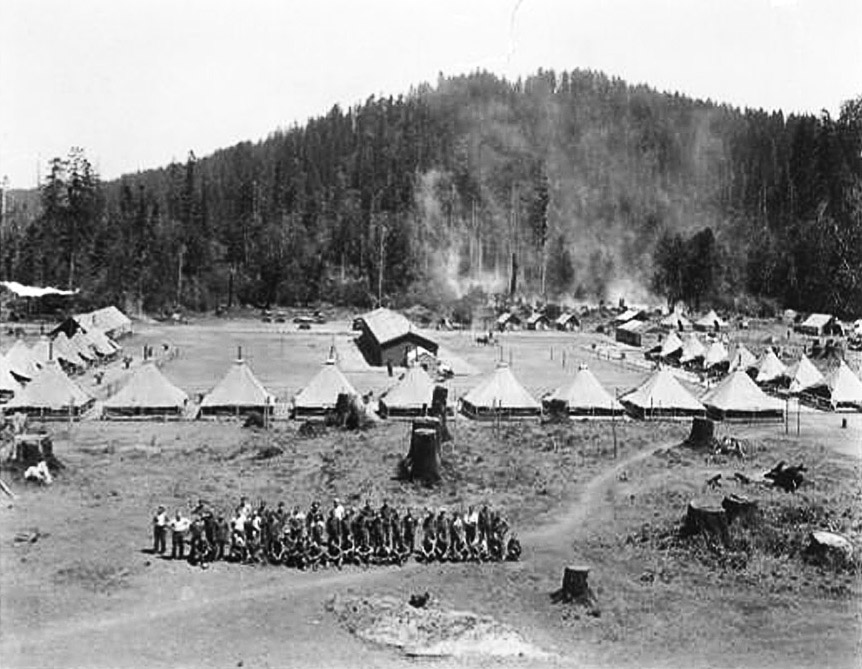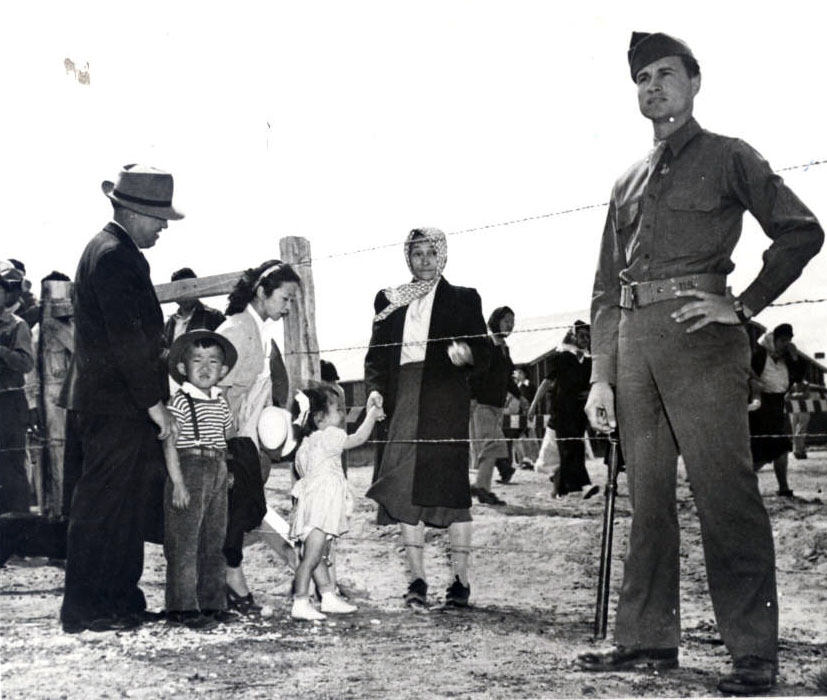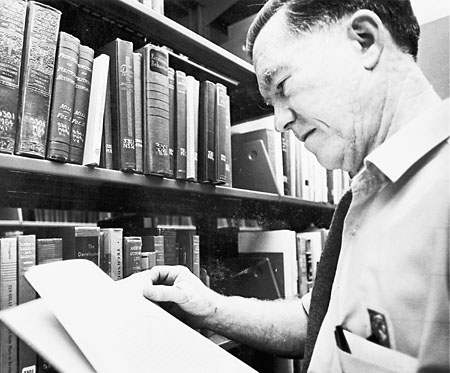Charles Davis was a distinguished Oregon businessman, public servant, and public citizen. A conscientious objector in World War II, he was an important figure in the development of the Oregon affiliate of the American Civil Liberties Union (ACLU).
Davis was born in Oklahoma City, Oklahoma, on May 7, 1919. It was his talent as a bass drummer that helped him obtain a scholarship to the University of Southern California, where he majored in accounting and earned a bachelor’s degree in June 1941. In December 1941, he was drafted as a conscientious objector (someone who because of religious or philosophical beliefs opposes personal participation in war) to do “work of national importance under civilian direction.” He was assigned to Civilian Public Service (CPS) Camp #21 at Wyeth, near Hood River, where he served as co-director in 1944. His years at the camp inspired his lifelong love of the Columbia Gorge.
Davis married Eleanor Ring on November 24, 1944 (they would have two children). After he was discharged from CPS in December 1945, he worked in California and Georgia before moving to Medford in 1950 and Portland in 1951. In 1957, Davis joined Electro Scientific Industries (ESI), one of the first two companies in Portland’s Silicon Forest. He held a variety of positions at ESI, including controller, chief financial officer, corporate secretary, and treasurer.
In 1975, Governor Bob Straub appointed Davis to the Public Utilities Commission (PUC). When his term ended in 1979, the Oregonian praised Davis’s work as commissioner as “vigorous, creative, courageous public service.” He returned to work at ESI until 1987, when he rejoined the PUC, first as a single commissioner and then as the chair of the newly formed three-member commission. In 1989, Davis was appointed interim executive director of the Multnomah County Library for a six-month term to facilitate the transition to a new county agency.
Davis was deeply involved in the Oregon affiliate of the ACLU, serving as a board member and president almost continuously from 1960 through 1975, and then as board member from 1980 through 1983. In 1973, the affiliate gave him the E.B. MacNaughton Award for his “contributions to ensure the preservation of civil liberties and the advancement of human rights—as civic leader, distinguished civil libertarian, and conscience of his community.”
In 1963, Davis joined the Portland City Club, where he was elected treasurer and then president. The club recognized his service with the City Club Award in 1985. He also served on the board of governors of the State Bar of Oregon (1980-1982), the Public Defender Committee (1982-1986), and the Committee on Judicial Fitness and Disability (1983-1987).
Beginning with his time at CPS #21, where he helped lead a protest of the proposed removal of conscientious objector George Yamada to an incarceration camp, Davis was passionately interested in the treatment of Japanese Americans during World War II. During the last years of his life, he researched the issue and raised public awareness of the effort to incarcerate Yamada. Just months before his death on July 4, 2002, he received an award from the ACLU for his efforts.
-
![Charles Davis presents ACLU award to Gov. Sprague, 1962. Blanche Sprague stands to the right.]()
Charles Davis (left).
Charles Davis presents ACLU award to Gov. Sprague, 1962. Blanche Sprague stands to the right. Courtesy Oreg. Hist. Soc. Research Library, 014614
-
![]()
Civilian Public Service Camp #21, 1942.
Courtesy Oreg. Hist. Soc. Research Library, 015051
Related Entries
-
![City Club of Portland]()
City Club of Portland
City Club of Portland is Oregon’s largest civic affairs group. It is a …
-
![Civilian Conservation Corps in Coos County]()
Civilian Conservation Corps in Coos County
From 1933 to 1942, Civilian Conservation Corps (CCC) enrollees in Coos …
-
![Hart Mountain Civilian Conservation Corps (CCC) Camp]()
Hart Mountain Civilian Conservation Corps (CCC) Camp
Camp Hart Mountain, a Civilian Conservation Corps camp, operated from O…
-
![Japanese American Wartime Incarceration in Oregon]()
Japanese American Wartime Incarceration in Oregon
Masuo Yasui, together with many members of Hood River’s Japanese commun…
-
![William Stafford (1914-1993)]()
William Stafford (1914-1993)
William Stafford, one of America’s most widely read poets, was born in …
Map This on the Oregon History WayFinder
The Oregon History Wayfinder is an interactive map that identifies significant places, people, and events in Oregon history.
Further Reading
"The Burke-Wadsworth Bill." The Civilian Public Service Story.
Lee, Marshall M. A Passion for Quality: The First Fifty-Five Years of Electro Scientific Industries, 1944-1999. Beaverton, Ore: Electro Scientific Industries, 1999
Davis, Charles. ”Attorney for the Betrayed.” Oregon Bar Journal 59.8 (June 1999): 15-18
Davis, Charles. “Land of the Free.” Oregon Bar Journal 59.9 (July 1999):19-24
Davis, Charles, and Jeffrey Kovac. “Confrontation at the Locks: A Protest of the Japanese Removal and Incarceration during World War II.” Oregon Historical Quarterly 107.4 (Winter 2006): 486-509










